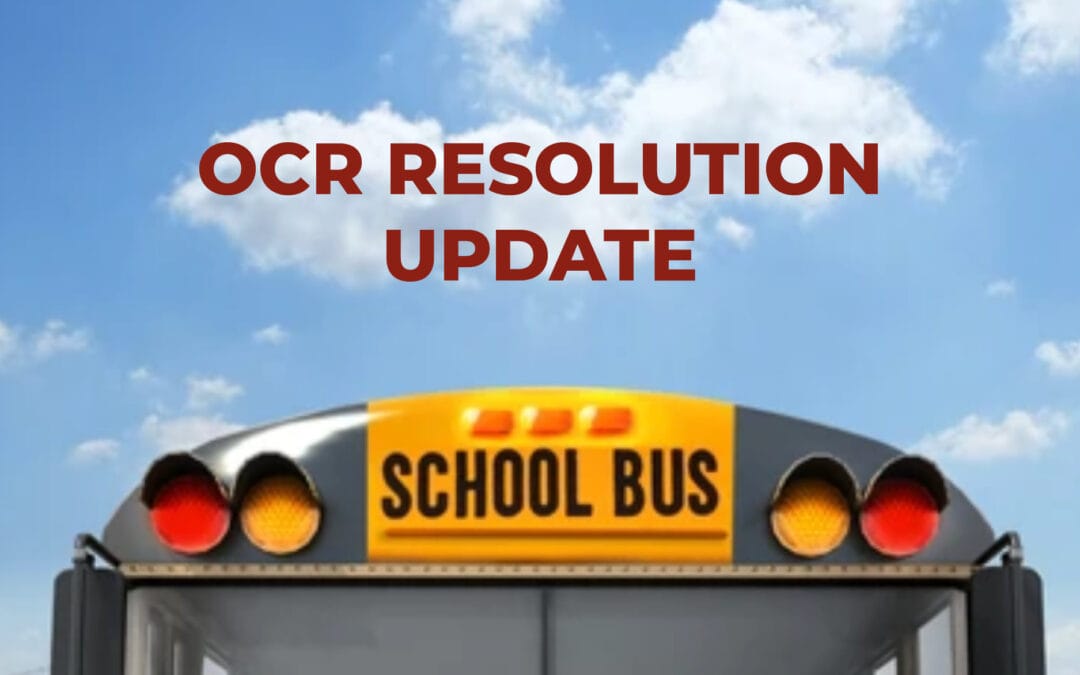The Department of Education entered into two publicly released resolution agreements with school districts thus far 2024. In January the Office for Civil Rights (OCR) resolved a complaint of antisemitic harassment against a student with the Red Clay Consolidated School District in Delaware. In March OCR resolved seven complaints involving antisemitic harassment and harassment based on race, sex, and disability with Park City School District in Utah.
In Red Clay, a student was subject to antisemitic harassment that created a hostile environment. OCR identified several concerns before resolving the complaint, including that the district failed to effectively address repeat offenders. OCR also noted that the district’s recordkeeping was inadequate and incidents of harassment were “miscoded” as “inappropriate behavior” or “abusive language/gestures.” These issues may have kept that district from effectively identifying (and then promptly responding to) harassment. The resolution agreement in this case includes individual remedies for the student complainant, along with the following requirements:
- Publish an anti-harassment statement that prohibits harassment, tells people how to report it, and warns about the consequences of being found responsible for harassing behavior,
- Review and revise the Title VI policy and procedures in accordance with the resolution agreement, which includes required elements of the policy and procedure,
- Create a tracking/recordkeeping system for reports,
- Train all school staff, including particular training for those conduct investigations,
- Provide age-appropriate educational programs to students,
- Conduct internal audits of past reports, and
- Conduct a climate assessment.
In Park City, the complaints alleged ongoing harassment based on race, national origin (including antisemitic harassment), disability, and sex that created hostile environments for students at the district’s middle school, junior high, and high school. OCR found that the district’s responses to repeated harassment did not meet their federal civil rights obligations, including failure to investigate or otherwise remediate race-based and antisemitic harassment. OCR also identified concerns with recordkeeping with regard to sexual harassment and Title VI and Section 504. The resolution agreement in this case includes the following requirements, in addition to the individual remedies for student complainants:
- Develop forms for reporting and recordkeeping,
- Develop a Title IX coordinator job description,
- Revise policies and procedures,
- Conduct a climate survey and create an action plan after analyzing the results,
- Provide training to employees, including those implementing these policies,
- Provide training to students and parents, and
- Conduct internal audits for various time periods, current and future.
What are the takeaways here? First, recordkeeping continues to be a top OCR concern. Without a proper tracking and case management system, a district or institution may not be able to show that they took the correct action in accordance with law and policy. Document the steps and the rationale of your process, including any deviations. These agreements include useful lists of the information an institution should be collecting and maintaining for each complaint. For example, refer to the forms on page four (4) of the Park City agreement.
These resolutions also highlight the importance of collecting and using data, for example, by conducting a climate survey and analyzing the results to create and then implement an action plan based on that analysis.
Like other high-profile reviews, these resolutions shed light on the importance of distinguishing between discriminatory or harassing behavior and “other conduct of concern,” although OCR does not use that exact language. Red Clay’s resolution, in particular, talked about “improper coding” of misconduct as violations other than discrimination or harassment, such as “inappropriate behavior” or “abusive language and gestures.” Consider reviewing such coding and conducting a self-assessment to review whether the facts of those cases were appropriately classified.
The Red Clay letter is here, and the agreement is here. The Park City letter is here, and the agreement is here.
Grand River Solutions can support your school in addressing the kinds of concerns raised by OCR in these reviews. Our expert consultants can review your policies and processes to flag compliance concerns and make recommendations for improvements. Our Case Tracker software not only tracks cases and all related correspondence and documents in one place, but also provides clarity and transparency to the parties, who can access their case directly, outside of their email inbox. We can support training needs as well as post-training assessments, and climate assessments.

